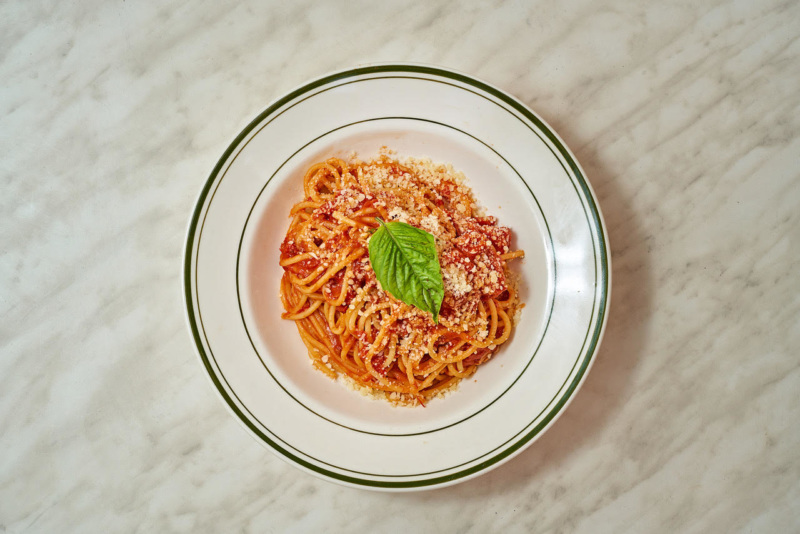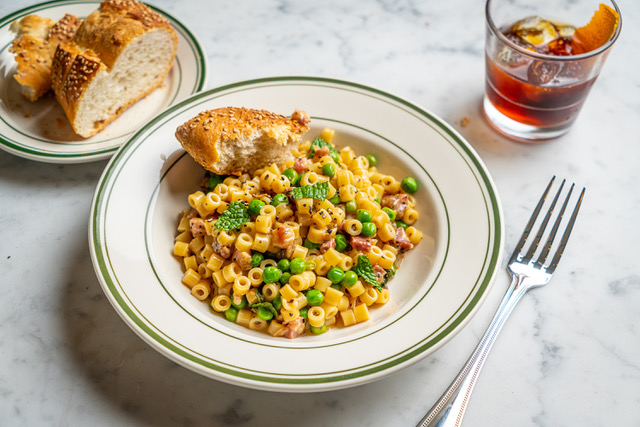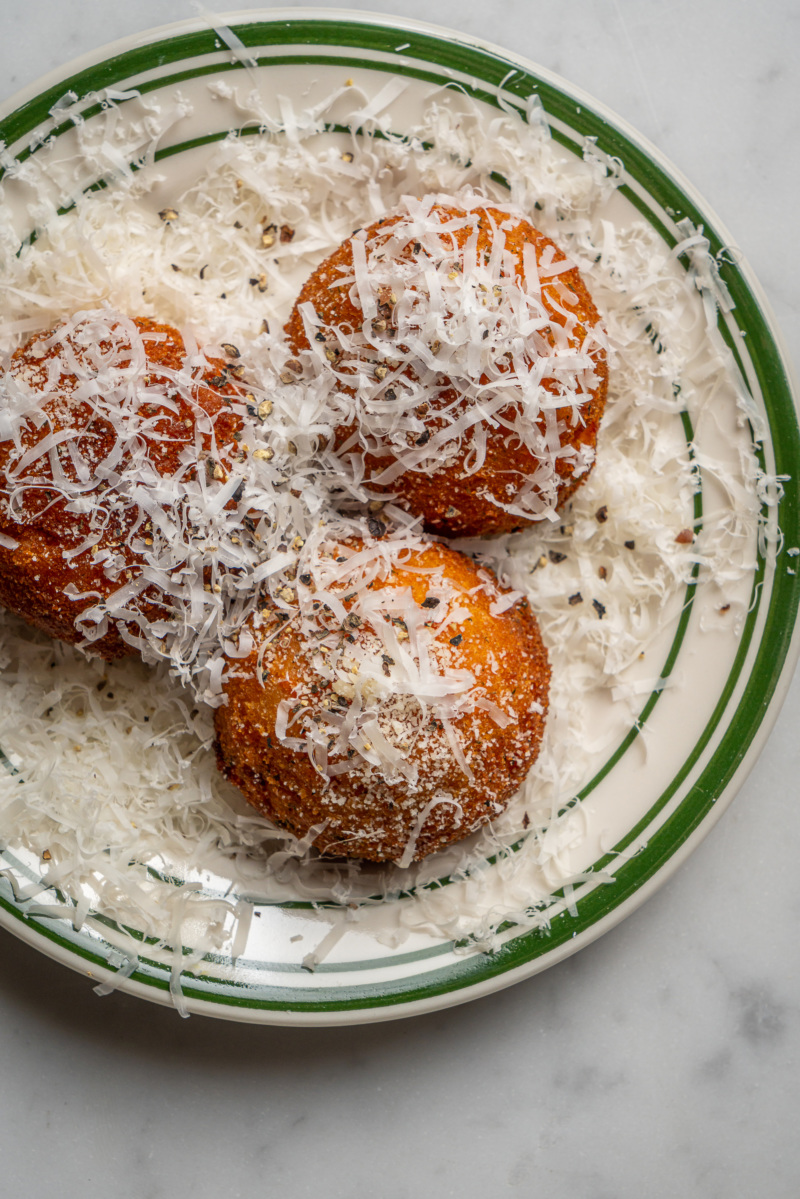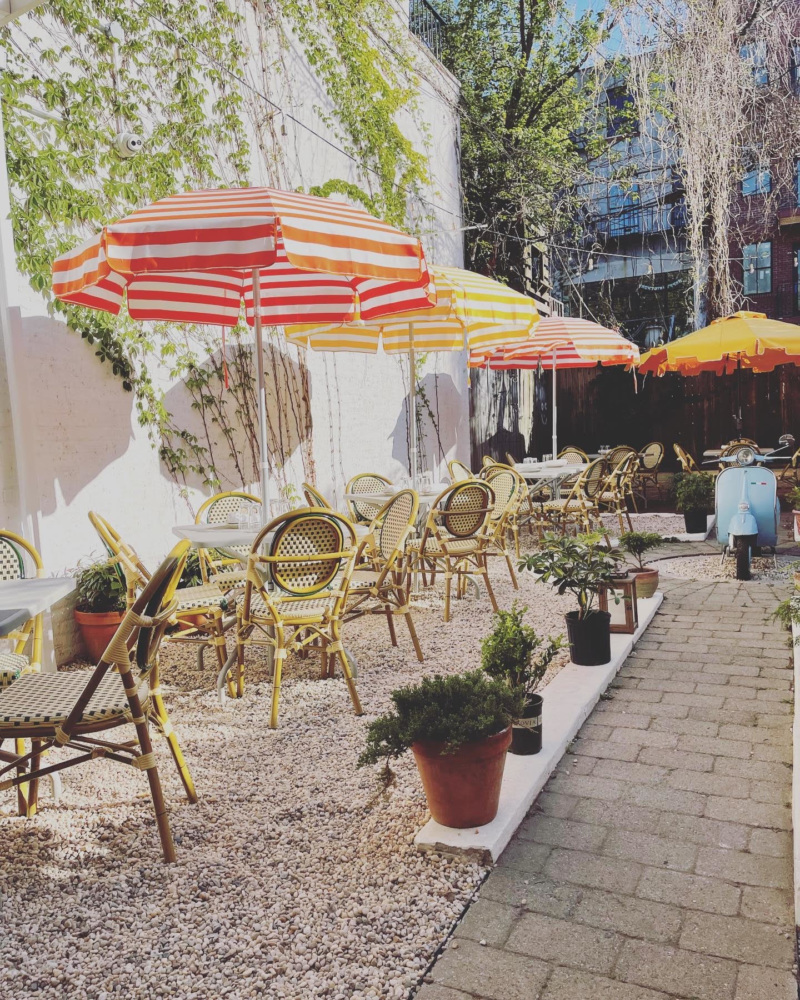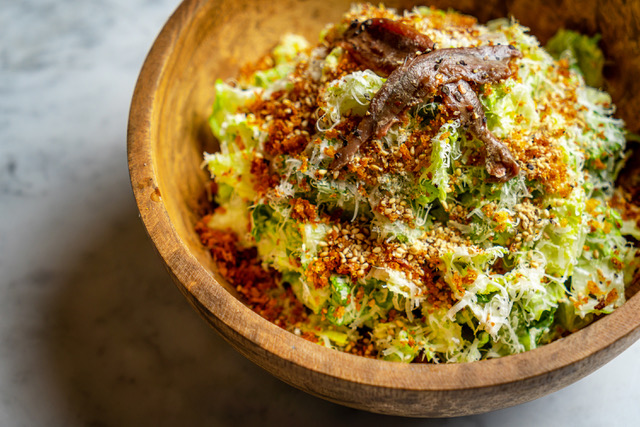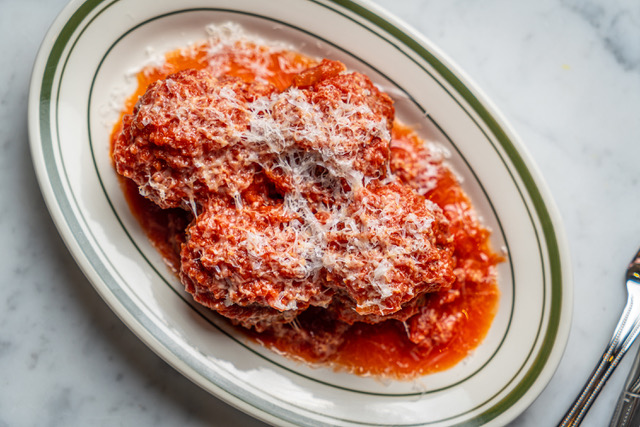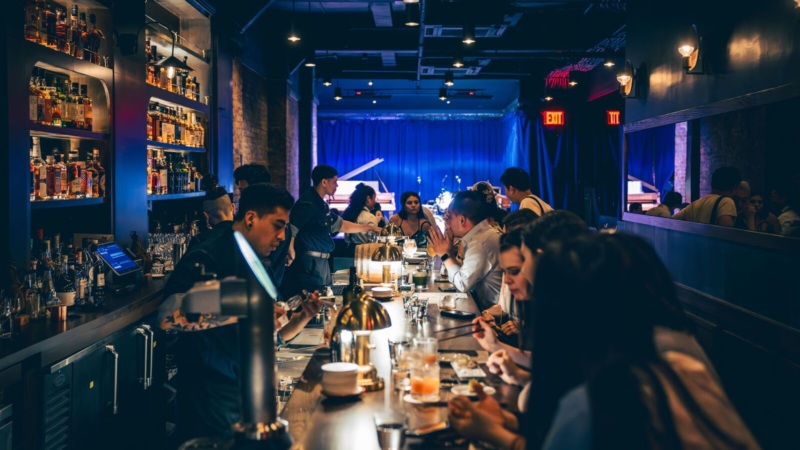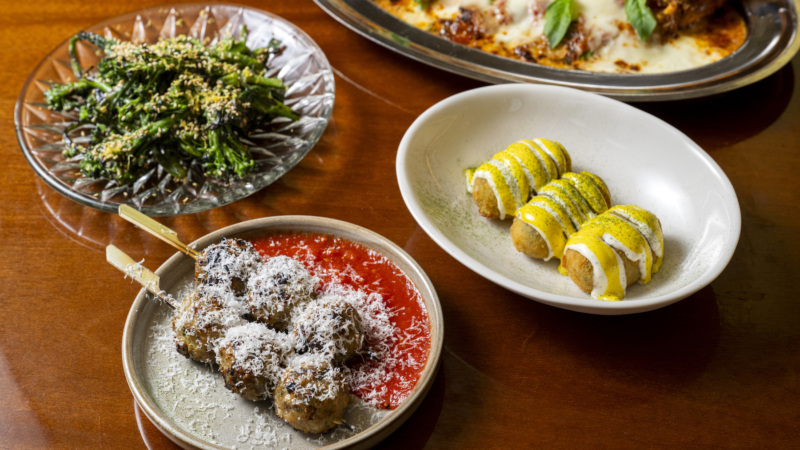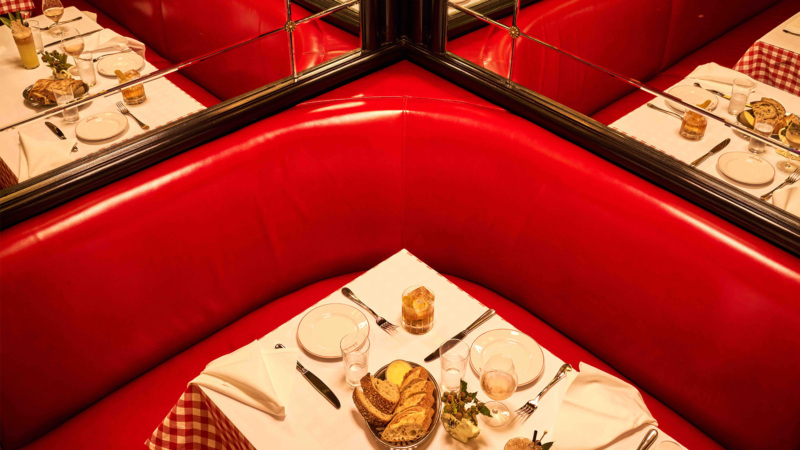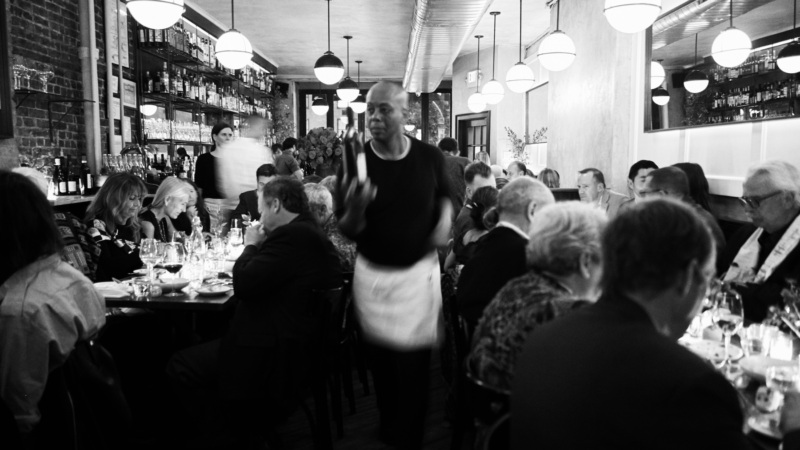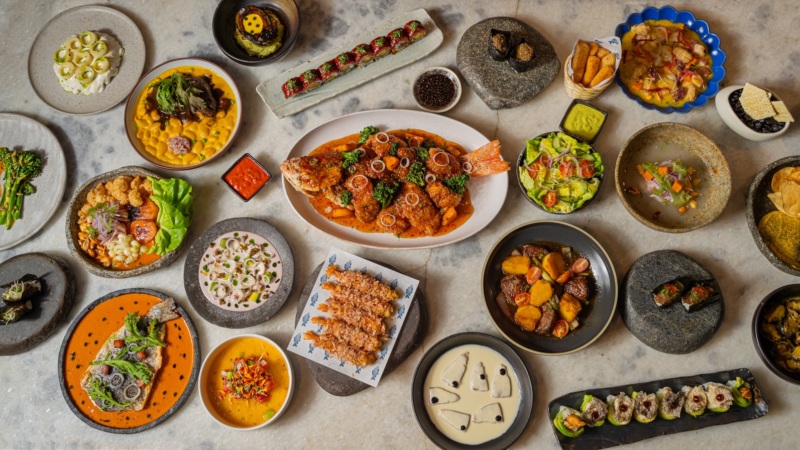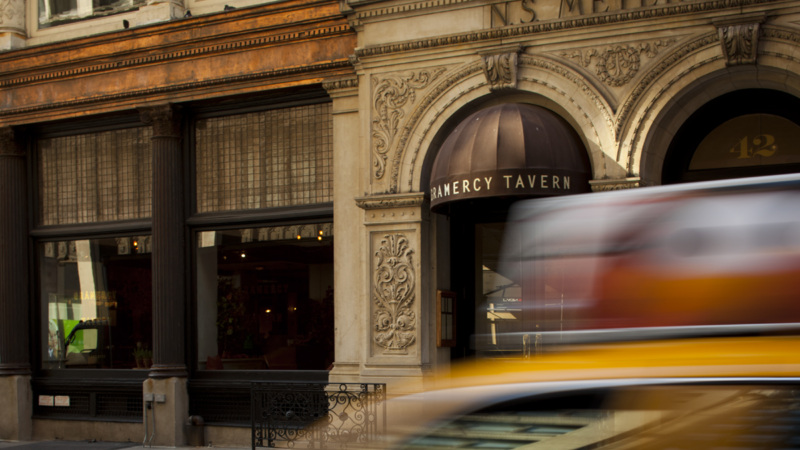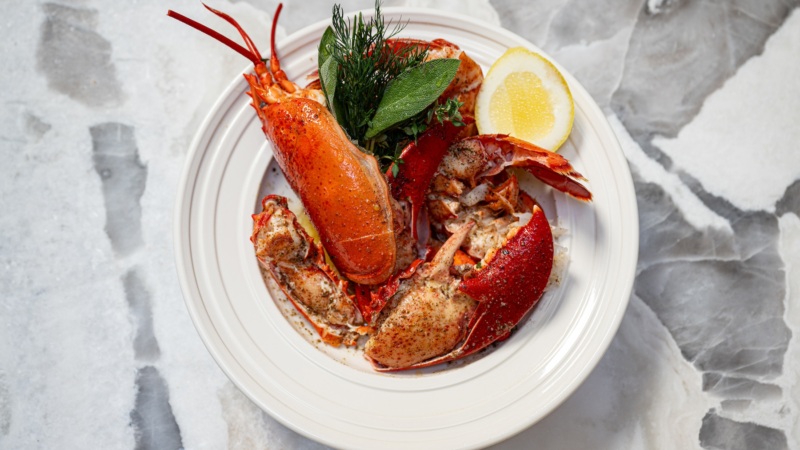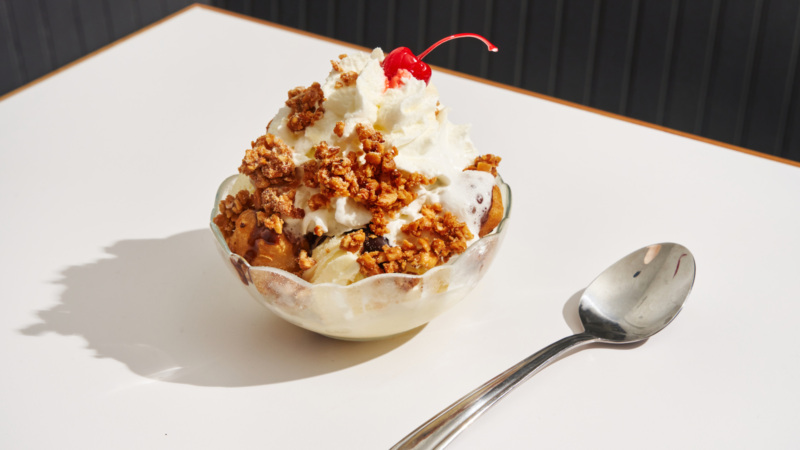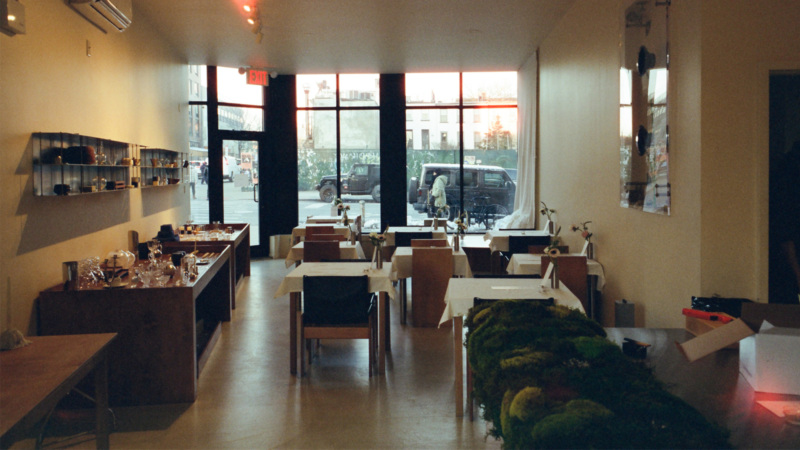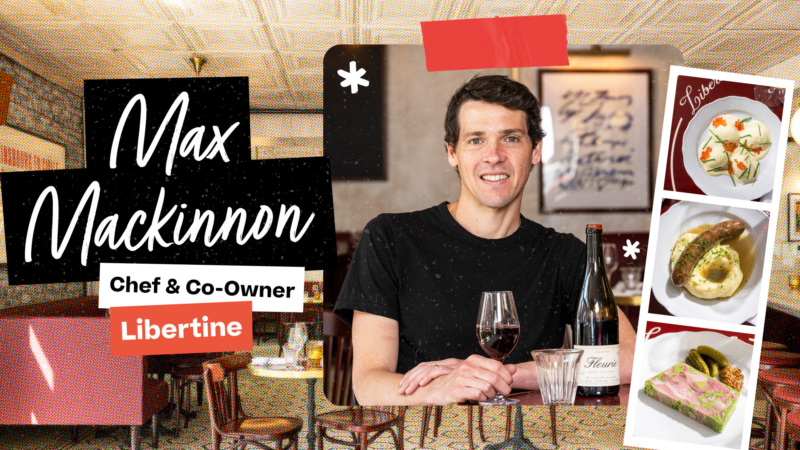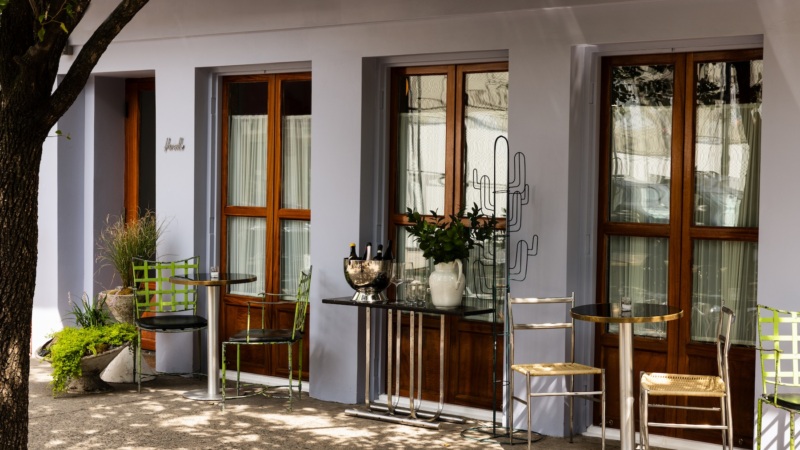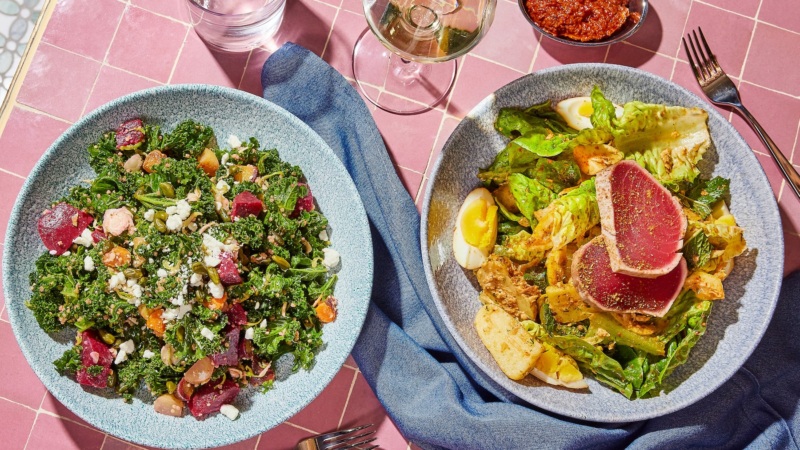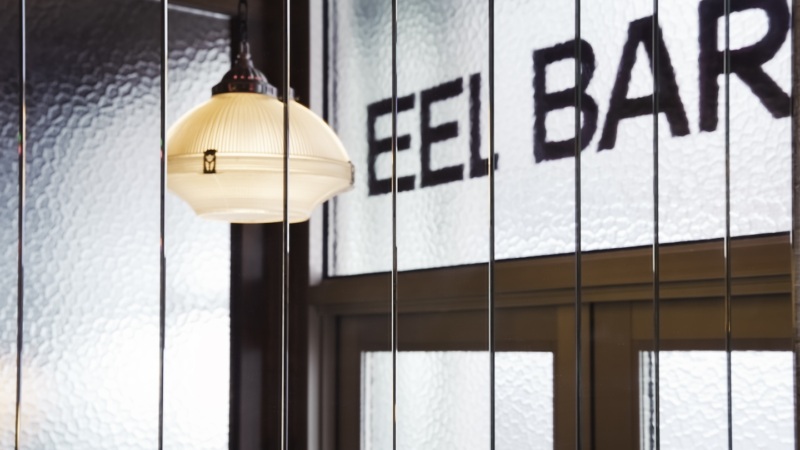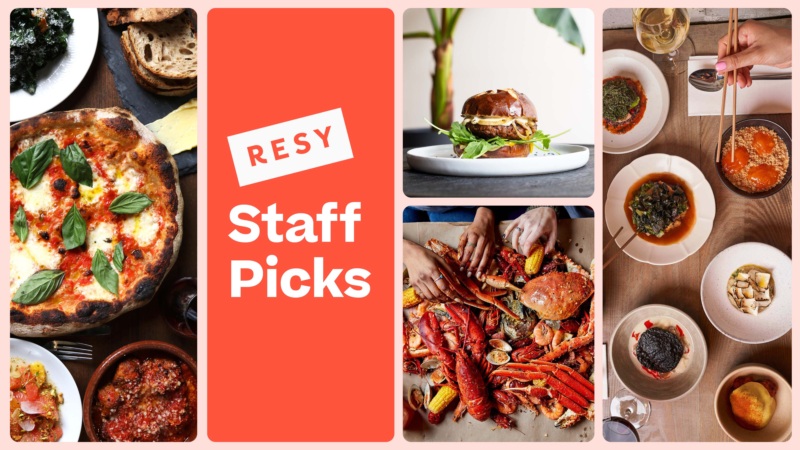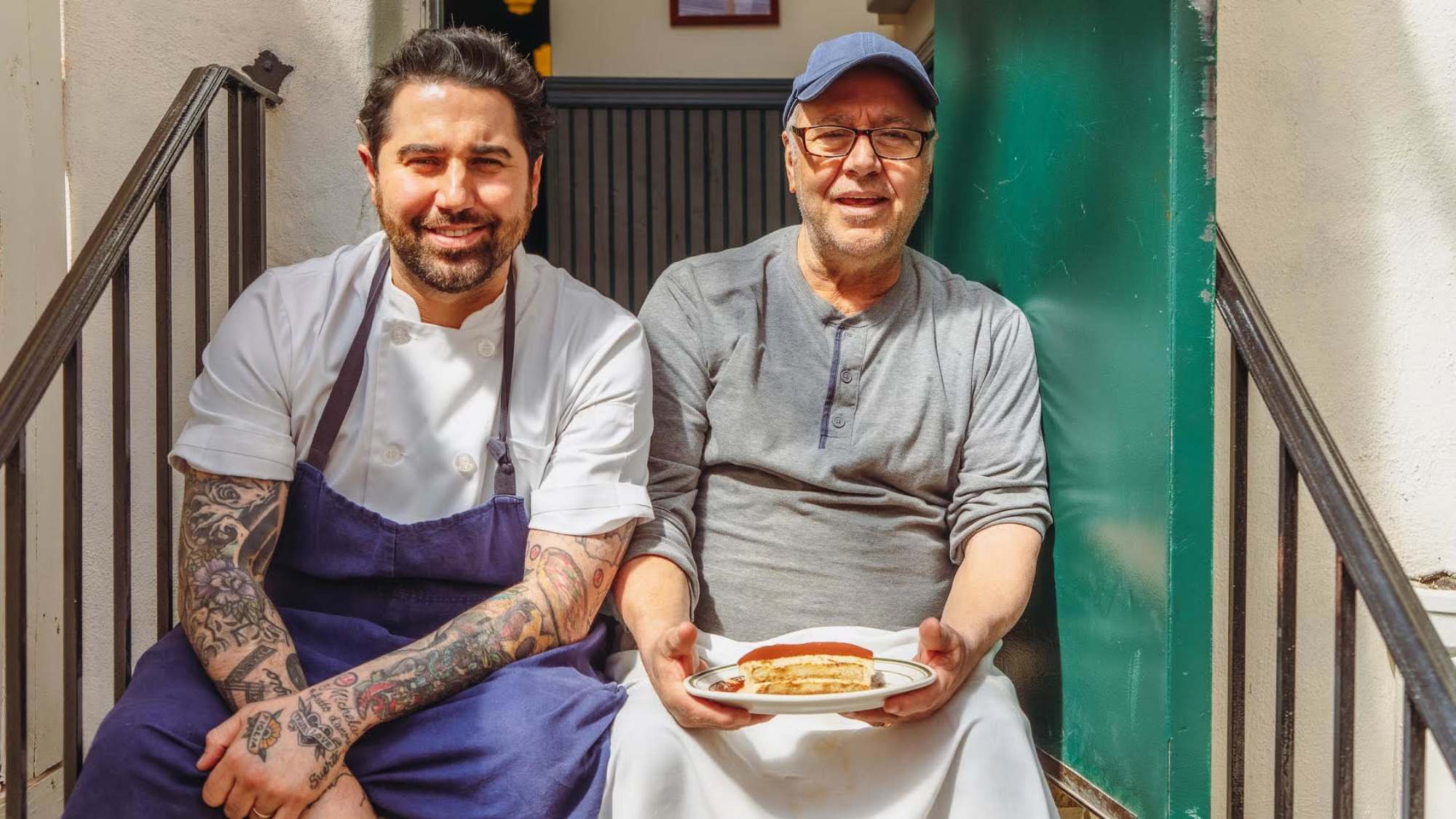
With Brooklyn’s Cafe Spaghetti, Sal Lamboglia Comes Home
It’s friends and family night at Cafe Spaghetti, a new restaurant that opened in Brooklyn’s Carroll Gardens neighborhood on May 4, and instead of being harried or frantic, chef-owner Sal Lamboglia is perfectly at ease in the busy hours before the restaurant’s opening.
He’s speaking Italian with his dad, then Spanish with two cooks holding a large wheel of Pecorino, and then switching over to English with the restaurant’s general manager, making plans. Ask him to describe a staple dish on the menu and he also may use his hands, sliding his palms away from each other in two quick slaps as if to say, “Just like that; done.” The Brooklyn native is Italian, after all, and if that wasn’t apparent from his time at Bar Primi, the Noho restaurant where he was chef and partner alongside Andrew Carmellini for seven years, it will be upon entering Cafe Spaghetti.
Above the bar, which will serve coffee and breakfast sandwiches all day before drinks and dinner at night, sits an old scale that belonged to the chef’s grandfather in Naples. The backyard, home to most of the seating, feels like Capri, with all-weather wicker chairs underneath striped umbrellas, and a blue Vespa on prominent display. (Lamboglia has three others to ride around town.) Ingredients are imported from the motherland and, more importantly, from around the neighborhood. It couldn’t be more fitting for Lamboglia, who was raised in Bensonhurst and has lived in Carroll Gardens for 20 years. Lamboglia is as Brooklyn as he is Italian, and in his very own place for the first time, he could not seem more at home. And as at-home as Lamboglia feels at his new joint, he wants diners to feel even more so.
This interview has been lightly edited for length and clarity.
Resy: In a city with so many Italian and Italian American restaurants, how will Cafe Spaghetti stand out?
Sal Lamboglia: When I go out to eat anywhere, I like to be taken care of. I want to be in a comfortable environment. Obviously, I want the food to be good, too. Neighborhoody, family-friendly (I have two kids): All that also means a lot. As we know, you can find all that in so many places, but to do that on my own and to have it be my own version of Italian America — that is super important.
As a native New Yorker and Italian American, what does it mean to carry on these traditions?
It’s a dream come true. It’s surreal. This means a lot to me, and I’m not just saying that. My dad was a chef for 40-plus years. His first job in America was cooking pasta at Angelo’s restaurant, which was a super famous place on Mulberry Street. My uncle is a really good baker. My other uncle makes mozzarella and sausage for a living. It was meant to be, right? It’s in the blood. It’s the only thing that I was meant to do.
How has your family and family history inspired what’s on the menu? Can you talk about the family influence on some of the dishes at Cafe Spaghetti?
The spaghetti pomodoro is my dad’s sauce. It was the first thing that I learned to make, and it’s super simple: Garlic, crushed tomatoes, herbs, and that’s pretty much it. [Whole peeled tomatoes, crushed by hand, Lamboglia later specifies.] Growing up, if we weren’t eating pasta, we’d bake eggs in that, or bake mozzarella with a big loaf of bread. Two or three times a week we ate that sauce.
There’s a dish on there with octopus and potatoes [an octopus insalata], which is a classic. I was in Naples for the first time many years ago and we went fishing on a tiny boat with my uncle around the Bay of Naples. My uncle, who’s a big fisherman, jumped off the boat into the ocean with a spear. He comes back with these beautiful baby octopus. My aunt’s catching them. She’s like, “We got dinner tonight! We got dinner tonight!” We went back to the house and my aunt just braised them some olive oil. She crushed potatoes with her hands, with just some lemon and oregano. And that was dinner. So, we’re going to do it the same exact way.
Let’s talk tiramisu. Your father made every batch at Bar Primi. Will he be making it for Cafe Spaghetti?
Yes. He’ll be making it in-house. He’s currently 70 years old. He’ll be popping in soon; you’ll hear him. Loud. Crazy. He’ll probably bring some sweets for the team. Only he makes [the tiramisu]. Only he made it at Bar Primi. It’s very, very yummy. There are a ton of good versions out there, but his is super, super light and airy. It’s not overpowering in any way. It’s not super soaked, or caffeinated, or boozy. It’s a really good balance.
Any other desserts diners should know about?
We’re making a Neapolitan zeppole, but it’s not a zeppole like you’d find at a festival. It’s a big zeppole that we’re cutting open and topping with custard cream and a bunch of juicy, sugary strawberries with some torn mint.
Is there one dish you expect will draw a lot of attention?
We’re doing this dish called spiedini alla Romana. My dad started out making it on Mulberry Street many years ago. It’s like mozzarella en carozza [a fried mozzarella sandwich]. It’s deep-fried mozzarella and bread that we’re basting with lemon, anchovy, white wine, and tomato. It’s like a glorified grilled cheese.
How about a sleeper hit? Something that might fly under the radar?
Eggplant parm. This is my mom’s version. It’s gluten-free. We layer it with provolone and fresh “mootz” that we make in house.
Are we selling mozzarella sticks here? No. Are we selling fried mozzarella? Absolutely.
When it comes to sourcing, are you importing ingredients? Or working with local purveyors or featuring any local specialties from the neighborhood?
We’re working with this place called Coluccio’s, [or D. Coluccio and Sons, Inc.]. It’s been family owned for a very, very long time. I’m good friends with the family, and they import everything. We’re using their olive oil, their dried oregano … They make this really good dried sausage, like a soppressata, so we’ll use that. We’re also sourcing a lot of our meat from Dellapietras on Atlantic Avenue, and bread from Caputo’s. We want to keep it in the neighborhood.
What were you trying to do at Bar Primi, and how will that differ from what you’re doing at Cafe Spaghetti?
Primi was like my first baby, and I went in there with that kind of mentality. I have “primi” tattooed on me, I have the street signs, and I felt terrible having to leave it, but it was time. A lot of guests, when they walked into Bar Primi and tasted the meatballs, they felt like they were in their grandmother’s house. We took a lot of pride in what we did there, and some dishes will carry over to here. But I think when you walk into this place, you’ll feel the difference. You’ll feel it in the air, in the decor, in the pictures [he says this, motioning to a black-and-white photograph of his grandfather], in the food. This will tell a different story. They’re similar styles: We’re still doing red sauce; we’re still doing meatballs. But I know people will come in here and it will feel different. The setting, the garden, the playlist.
What’s on the playlist?
In the morning, it’s gonna start out super jazzy: Ella Fitzgerald, Louis Armstrong, Billie Holiday. I love, love, love, them. Frank [Sinatra], Dean [Martin], all that good stuff. As the day goes on, it’ll get a little livelier. We’ll do some hip hop and rock and roll.
How do you feel about the divide between Italian and Italian American red-sauce joints?
It all depends on whom you ask. [At Cafe Spaghetti], we’re in New York, and we embrace that. Both of my parents were born in Italy, and I’ve traveled there many times. We’re pulling from the Old World, but a lot of this is Italian American. But are we selling mozzarella sticks here? No. Are we selling fried mozzarella? Absolutely.
Where does Italian American food go next?
When I was in culinary school and I started working in restaurants with Andrew [Carmellini] at A Voce, Italian American food wasn’t cool. It was being made, it was always popular, but it wasn’t cool. No one wanted garlic knots and baked clams. I’d ask to run a special and a chef would say, “We’re not doing that.” But now all of a sudden, in the last few years, it’s super cool if you make baked clams. And that’s great for me and for other restaurants that helped push that forward. When I go to a family banquet, it’s an event. But now, it’s come onto the scene. So for me, it’s adding provolone to the eggplant parm, which isn’t “Oh my god,” but it’s different. If we make a chicken parm, we might shave some fontina, use some pesto, or make our own “mootz.” We’re going to do the classics, but we’re going to make them a little bit different, or better.
Cafe Spaghetti is open Tuesdays through Sundays from 8 a.m. to 3 p.m. for breakfast and coffee, and from 5 to 10 p.m. for dinner; on Fridays and Saturdays it’s open until 11 p.m. for dinner service.
Alison Spiegel is a writer and editor living in Brooklyn. Follow her on Instagram and Twitter. Follow Resy, too.
Discover More
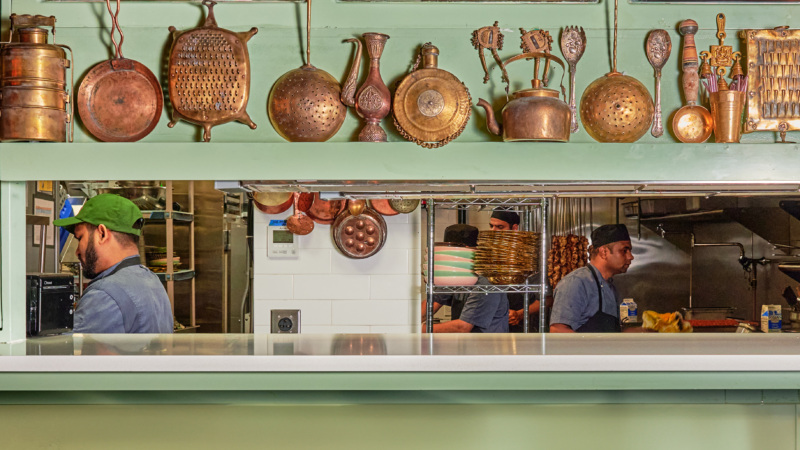
Stephen Satterfield's Corner Table


